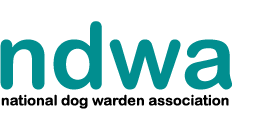Latest News Headline

|
|

|
|
IN HOUSE OR OUT OF HOUSE WHAT IS THE BEST ROUTE?Mon, 06 Jul 2009Around the dog control world in the United Kingdom it is becoming apparent that a number of local authorities that contracted out their Dog Warden Services are now bringing those services back in-house. What can the reasons for this change of tack be? After weighing up the pros and cons it must be realised that not many profit driven contractors are going to be able to offer the same level or an even higher level of service provision as an in-house service. Sure it is taken for granted that a contractor is going to offer a lower price than any in-house service but is cheaper necessarily better? Without adequate support it matters not whether a Dog Warden Service is in-house or contract, without proper backup and support it will be unable to provide a satisfactory level of service provision to the local authoritys dog control functions. The advantage with in-house is that funding can be obtained and used solely for the purpose of improving the Dog Warden Service under the direction of Environmental Health Managers who will drive the dog control element of the service plan through. Contract services on the other hand may appear to be stuck in situ with no progression for staff members who may never receive a pay rise or bonus for exceeding the level of service provision on offer nor may they receive competent certificated training opportunities. Who makes on this, the contractor, the local authority, but possibly not the member of staff who may be in post for several years and receives no increase in salary at all? Whilst the price of the contract increases over the years and possibly the level of work increases, the provision of a competent service that matches the level of work remains static. The government recommended number of Dog Wardens per head of population was set at 1:50,000, how many contracts operate with only one dog control staff member of whatever level of training and knowledge in a district with more than 50,000+ residents? To rely totally on a contractor with no fall back plan or scope for increasing the number of staff and equipment to support a sudden increase in workload is wrong and if you pay for a certain level of service and the contractor fails to maintain or even achieve it, how is the contractor able to believe it provides a competent level of service? What is equally wrong is to think that by using the cheapest method on offer the local authority is saving money, this really can be a false economy as the level of training available via contracted staff can vary widely whilst in-house staff may receive graduated training from an employer committed to the career progression of their employees and may also have other integral roles within the Environmental Health team? For the sake of animal welfare, operator safety, the protection of public safety and value for money, local authorities should give consideration to the provision of the best level of service they can which incorporates all of the above without compromising any of the above just because it is cheaper to employ a contractor. There are some excellent well trained dog control contractors out there but there are also some extremely poor ones who give dog control a bad name but because they seem to offer hard pressed councils a cheap option for their dog control commitments they are snapped up as best value, something that may subsequently come out in the wash to show that it most certainly is not. On the other hand there are also some very poor in-house Dog Warden Services as there are some excellent ones, it really does depend on how much money the councillors want to put in to their services to protect the public. Section 68 of the Clean Neighbourhoods & Environment Act 2005 is the prime example of local authorities shirking their responsibilities by interpreting the DEFRA guidance to their own ends and not providing a 24/7 service to deal with dogs in their respective districts. If a culture of getting out of a spot by reading something to mean they do not have to provide a proper service is the norm, what hope is there for the provision of competently trained and funded daytime services which are either in-house or contracted? Many local authorities do seem to look at the minimum level of what is required to discharge their statutory dog control functions, instead of minimizing they should be looking to expand their services and promote responsible dog ownership through a combination of education and enforcement. Return to the full list of news articles |
Latest News Headline

|
| For Dog Wardens | Missing Dogs | About NDWA | |